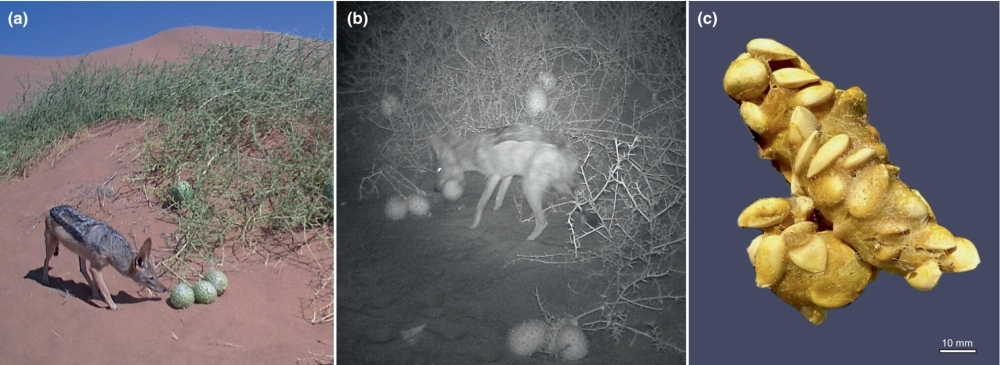How black-backed jackals spread !nara seeds
Carnivorous mammals are often reported to feed on fleshy fruits and disperse seeds, according to a scientific article in the Journal of Zoology authored by Namibian scientist Saima Shikesho.However, these interactions are rarely observed and are poorly understood in dry regions.
Shikesho has now looked at animals that spread !nara seeds. The main propagators turned out to be black-backed jackals who like to eat ripe fruits and recognise them by their smell.
The !nara is a plant species from the cucurbit family and occurs mainly in a 40 to 60-km wide strip on the coast from the Orange to the Kunene.
"Our results suggest that black-backed jackals play an important role in the dispersal of !nara seeds and use the sense of smell to detect ripe melons."
Both wild and domestic herbivores - including oryx, cattle and donkeys - eat their fruits, but they have large molars with which they crush the seeds. Jackals have less developed molars, meaning seeds pass through them intact. In addition, the germination rate of seeds ingested by jackals was higher than that of seeds not ingested.
"The melon appears to be a source of food and water for jackals in central Namib. Other predators such as the brown hyena and the Cape fox also feed on the melons, but appear to play only a minor role in the dispersal of the seeds."
Jackals were very picky and use smell as a clue when selecting ripe melons because 48.4% of jackal visits included sniffing melons. "The smell of ripe melons is imperceptible to humans, but animals with a sensitive olfactory system can detect the scent. Eating ripe melons is important to ensure that the scattered seeds are ready for germination."
Another interesting behaviour was that jackals occasionally (1.4% of visits) urinated on melons. “Although not common, urinating on melons could be an indication that jackals are marking melons in the same way they mark their territory and/or trying to hide the melon smell from other jackals that may be visiting."




